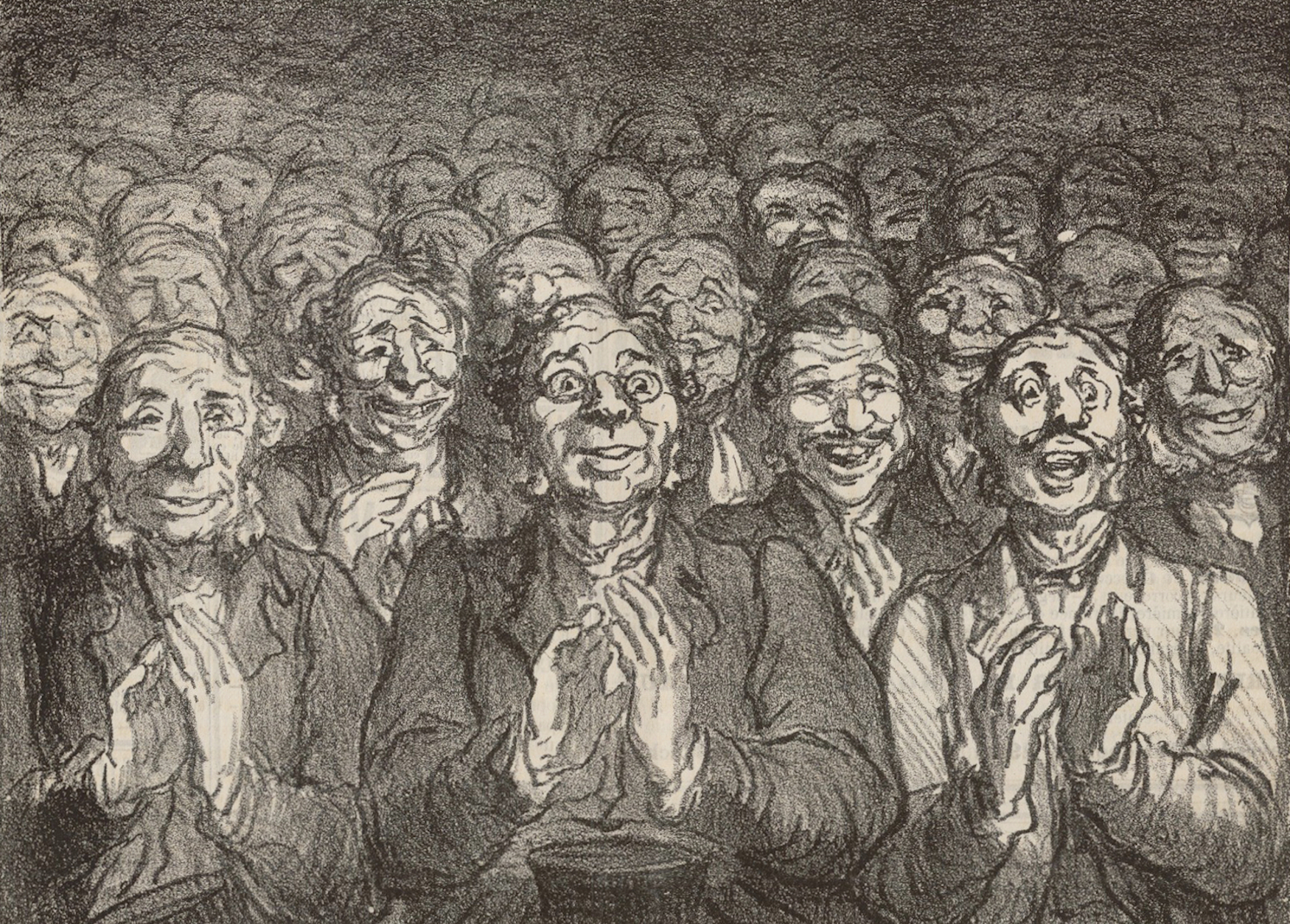Society makes us depressed and then it comes to our aid with all sorts of remedies, all sorts of so-called ‘cures’ or ‘therapies’. They’re not really cures at all however – they are only manoeuvres designed to offset the suffering of depression in some kind of a temporary way. As long as we’re able to offset the depression that we have been saddled with then we are said to be ‘mentally well’, we are given a clean bill of health. People will say that we’re functioning ‘exactly as we’re supposed to’. ‘Functioning exactly as we are supposed to’ is good for the overall setup that we are part of, but not necessarily so good for us, needless to say. What’s good for the slave-owner isn’t good for the slave…
This way of defining mental health is geared to the collective entity, not the individual, therefore. The individual doesn’t really count for anything in society, as Jung observes. The ‘generic social unit’ counts for something in a kind of a way (since the generic social unit is what it society is designed around) but since no one actually is a generic social unit this doesn’t really qualify as a particularly good argument! To say that society ‘doesn’t care about the individual’ is a pretty basic observation to make but – collectively speaking – we choose not to take it on board (for obvious reasons). There would be no such thing as society if we were all individuals; in order for there to be such a thing as ‘society’ we need to be regulated so that we act and think in a uniform way and when we are regulated then that makes us generic, not unique. There is no way therefore that we can be ‘generic in nature’ and ‘who we really are’ at one and the same time. The notion of ‘generic mental health’ is a bit of a non-starter, therefore.
We determine mental well-being by looking at how well-adapted we are to the ‘collective reality tunnel’ – are we able to adapt nice and smoothly (so as not to draw attention to ourselves) or is there some kind of problem or issue holding us back? Were this to be the case then we would be diagnosed as having the problem, not the system that we’re trying to adapt to. No psychiatrist ever diagnosed the society they are part of as having as ‘a mental health issue’. If I can’t adapt successfully to the standardized reality that we have all colluded into bringing into being then this is seen as being a pathology on my part and no one sees anything wrong with ‘blaming the victim’ in this way! Obviously it’s the individual in question’s problem, we say, not ours…
We have to have some kind of measure to determine what is (and is not) mental health and the standard we choose is inevitably going to be that of the group. This is what adaptation means, after all – it means that we all adjust ourselves to fit this same system so that if we deviate then it is the individual that is ‘wrong’ not the group. It’s not possible for the group ever to be meaningfully brought into question; there is about as much chance of this happening as there is a perp turning around and arresting a police officer, or a patient diagnosing their psychiatrist – the machine works one way but not the other. The machine wouldn’t be a machine if this worked both ways; a machine can be defined as ‘the systematic enactment of a rule’ and this is a one-way system inasmuch as a rule can’t ever question itself. Rules only work the one way and that’s how come they get to be rules.
Our only way of knowing ‘how things should be’ (or ‘not be’) is the group’s way – it is the consensus that tells us how to think, it is the consensus (and not the individual) that provides us with all of our measures and these measures aren’t something we can question. As we have just said, this is the only way machines can work – a machine has an input and an output and the input gets converted into the output via the operation of certain rules. Machines are the way in these rules get enforced, therefore, and when it’s the social machine that we’re talking about then the unadapted person (or child) is the input, the socialised adult the output, and the rule that is to be enforced is the particular culture of that society (i.e. the culture that is being embodied by the final product). The adapted person is the rule, therefore – the socially-adapted person are themselves the standard by which deviance or conformity is to be assessed. The adapted person are themselves ‘the system that is to be unquestioningly replicated’.
Irrespective of how the system sees mental well-being, the whole business of adaptation – when seen from a human (rather than a mechanical) perspective – is clearly pathological. Life has become a matter of nothing more than adjusting ourselves to some abstract idea, some abstract template, and the idea or template in question is entirely meaningless, entirely arbitrary. It’s only a blank formula. What’s important here is the act of conformity, not what is being conformed to. What matters is that we obey the rule, not what the rule is. The story we’re told is that it’s very important to make the right choice regarding what set-up is to be conformed to; we say that it’s crucial to find ‘the right rule to obey’ – this is what we’re always arguing about, being unpleasant about, fighting wars about, after all – but from a psychological perspective all of this is simply irrelevant – to be adapted to one template is no different to being adapted to any other. It all comes down to the question of whether we are in Autonomous Mode (where we are true to our own nature) or Heteronomous Mode (which is where we are ‘true to the machine’).
By focusing on the question as to whether the template we are adjusting ourselves to is the right one or not, or – if we accept that it is the right one – the question of what we can do to optimise our performance within the given parameters, we lose sight of the bigger question, which is ‘Do we really need to be adapted to a system in the first place?’ This is why ‘optimization’ goes hand in hand with unconsciousness – the more we concern ourselves with ‘how best to play the game’ the less likely it is that we will ever ask the question as to why we have to play it. The tacit assumption we’re making (when we put all our money on optimization) is that there’s no way for us to do well unless we’re adapted to some logical structure, unless our lives are predicated upon an idea or theory that we all have in common regarding ‘what life is all about’. We don’t spend any time examining this assumption and – what’s more – it’s crucial that we don’t if we did then we’d very quickly see that what we’re assuming (i.e., the notion that life has to be lived ‘via guidelines’ (or ‘via a standard formula’) is utterly absurd. ‘Living’ and ‘enacting a formula’ – or as we could also say ‘living’ and ‘obeying the rule’ – are two very different things. It’s either the one or the other but it can’t be both.
The socialised life – which is to say, the type of life that is acknowledged by the collective – is a scripted life – it cannot be otherwise – and a ‘scripted life’ is essentially a description of life rather than the thing itself. It’s what we say life is. When we live ‘the scripted life’ then we can’t live anything that isn’t in the script; when we live our ‘description of life’ then we can’t live anything it isn’t in the description. The thing about this however is that a description or script is only ever going to be skin deep – it’s only ever going to be ‘skin deep’ because there’s nothing behind it. To subscribe to ‘the official version of life’ is to turn a blind eye to anything else, anything that hasn’t been officially authorized. The official description has no reality outside of the artificial framework which we have elected to navigate our lives by – the description is the artificial FW we have elected to live our lives by. If we were living life itself, on the other hand, then we’d never be in that situation where there’s no depth, no nuance to anything – we would in other words be in the situation where everything is a ‘defined surface’. A defined surface isn’t ‘a naturally occurring thing,’ we might say; it’s not a situation that is going to ‘come about by itself’. A defined surface doesn’t actually exist, come to that – that’s not a real thing. To talk about a reality that has been ‘defined’ simply means that we have (in this situation) taken away the freedom that things have to not be ‘what we have said they are’, and ‘the freedom that things have to not be what we say they are’ is just another way of talking about the freedom things naturally have to be what they actually are. The only way we have of describing what things are is to say that it is never what we say it is, never what we think it is. Therefore, to ‘make the world be what we say it is’ is to create an unreal world. We’re bringing the world into alignment with our assumptions for it, but our assumptions are absurd. There’s no way they could ever be true…
When we get to say ‘what stuff is’ then that’s not reality, that’s hyperreality – the Hyperreal is that realm where absolutely everything gets defined (even though ‘defining everything’ is a ridiculous impossibility). To say that ‘everything is defined’ is to say that everything is ‘foreground’, that everything is ‘positively stated,’ and – very clearly – we just can’t do that. No matter how hard we try to do it we can’t and the reason we can’t is because ‘making everything certain’ is an utterly insane project. In order to make a statement regarding ‘what we know to be true’ we have to have ‘something that we don’t know about and don’t know that we don’t know about’. “Knowledge requires ignorance”, as complexity pioneer Stuart Kauffman says. Entropy facilitates positive knowledge, entropy facilitates certainty – we might say – but the crucial point here is that to say that <entropy facilitates certainty> isn’t to say that ‘certainty’ is in any way real. On the country, what we’re saying here is that so-called ‘certainty’ is a fiction, a fantasy, a ‘made-up thing’. To achieve ‘wall-to-wall definition’, wall-to-wall certainty, is an absurd impossibility and if we weren’t driven by fear in everything we do then we’d see this.
Certainty is a contrived or artificial thing and yet we are entirely prepared to overlook this very considerable drawback – the suggestion that there could be such a thing as ‘a Positive Reality’, or ‘a reality where everything is stated’, (or ‘a reality where everything is foreground’, is fantastically nonsensical, and yet this is the only type of reality we ever want to hear about. When we talk about mental health (or mental well-being) then we’re talking about it in terms of something that can be found within the context of this absurd world and when we do that we’re simply raving. To define mental well-being in terms of our ‘successful adaptation to an absurd situation’ is a profoundly insane thing to do – as no one can deny – and yet this is precisely our position. Most of us in the field would argue that depression (for example) is essentially caused by ‘chemicals in our head’. This seems like a reasonable theory to us – it makes perfect sense to us to say that misbehaving molecules are what lies behind mental ill health. The suggestion that depression is the result of us insisting on living our lives an absurd situation doesn’t make any sense to us, on the other hand. It doesn’t make any sense to us and we don’t want to know anything about it. And – as we have already said – the reason it doesn’t make sense to us (and the reason we don’t want to know about it) is because it is only by not seeing where depression really comes from that our contrived way of life can continue. If it’s a choice between society – which is to say, the collective reality tunnel – being shown up as a depressogenic fiction and ‘us having to continue to lead absurdly meaningless lives – then our money is always going to be on ‘protecting the consensual hallucination’. That’s where our allegiance lies, at the end of the day…
Image credit – pixia.art






